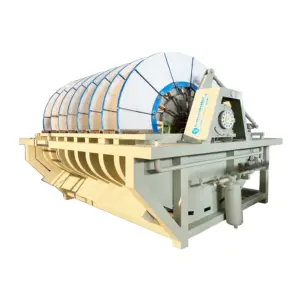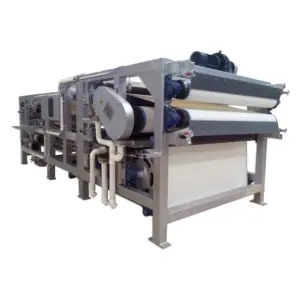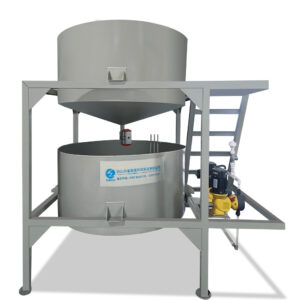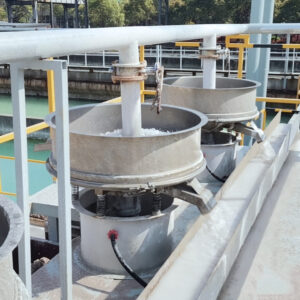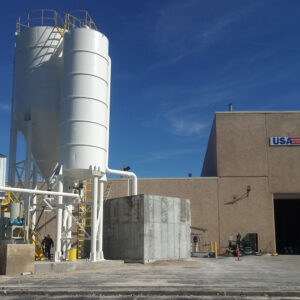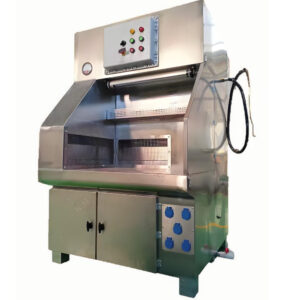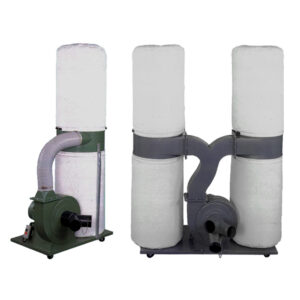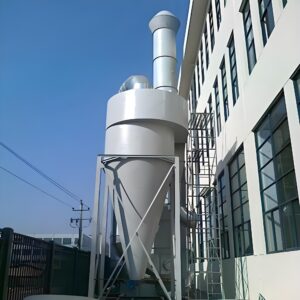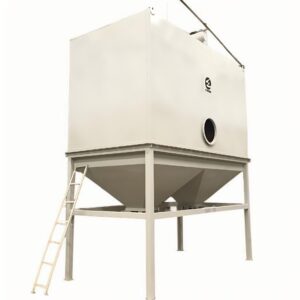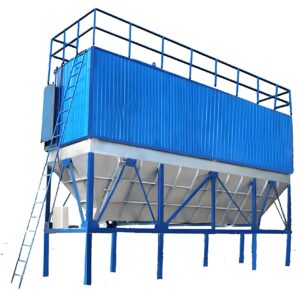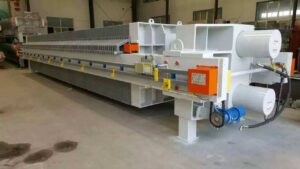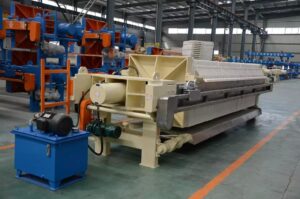Industrial dust control is a critical aspect of modern manufacturing and processing environments. As industries strive for cleaner, safer, and more efficient operations, the benefits of implementing robust dust control measures have become increasingly apparent. From improving air quality to enhancing worker safety and productivity, the advantages of effective industrial dust control are far-reaching and significant.
In this comprehensive article, we'll explore the seven key benefits of industrial dust control systems. We'll delve into how these systems can revolutionize workplace environments, protect valuable equipment, ensure regulatory compliance, and contribute to overall operational efficiency. Whether you're a plant manager, an environmental health and safety professional, or a business owner, understanding these benefits can help you make informed decisions about implementing or upgrading dust control measures in your facility.
As we navigate through the various aspects of industrial dust control, we'll examine its impact on employee health, equipment longevity, product quality, and environmental sustainability. We'll also look at how modern dust control technologies are evolving to meet the changing needs of industries and the increasingly stringent regulatory landscape.
Let's begin our exploration of the key benefits that make industrial dust control an indispensable component of any forward-thinking industrial operation.
"Effective industrial dust control is not just a regulatory requirement; it's a strategic investment in workplace safety, operational efficiency, and long-term sustainability."
How Does Industrial Dust Control Improve Air Quality and Worker Health?
Industrial dust control systems play a crucial role in maintaining clean air within manufacturing and processing facilities. By capturing and filtering airborne particles, these systems significantly reduce the concentration of harmful dust in the workplace atmosphere. This improvement in air quality has direct and profound implications for worker health and safety.
The primary function of dust control systems is to remove particulate matter from the air, including fine dust, metal shavings, and other potentially harmful substances. By doing so, they create a healthier breathing environment for employees, reducing the risk of respiratory issues and other health problems associated with long-term exposure to industrial dust.
Implementing effective dust control measures can lead to a noticeable decrease in respiratory complaints among workers, fewer sick days, and improved overall well-being. Moreover, cleaner air contributes to better visibility within the facility, reducing the risk of accidents and improving overall workplace safety.
"Industrial dust control systems can reduce airborne particulate matter by up to 99%, creating a significantly cleaner and healthier work environment."
| Health Benefit | Impact of Dust Control |
|---|---|
| Reduced Respiratory Issues | 30-50% decrease |
| Improved Air Quality | Up to 99% particulate reduction |
| Decreased Sick Days | 20-40% reduction annually |
In conclusion, the implementation of industrial dust control systems is a proactive approach to safeguarding worker health. By maintaining clean air in the workplace, these systems not only protect employees from immediate and long-term health risks but also contribute to a more comfortable and productive work environment.
Can Industrial Dust Control Enhance Equipment Longevity and Performance?
Industrial dust control systems play a pivotal role in extending the life and improving the performance of machinery and equipment. In environments where dust accumulation is a constant challenge, these systems act as a protective shield for valuable assets, preventing the detrimental effects of dust infiltration.
By reducing the amount of airborne particulates, dust control systems minimize the risk of dust settling on sensitive equipment parts. This is particularly crucial for machinery with moving components, electronic systems, and cooling mechanisms. When dust accumulates on these parts, it can lead to increased friction, overheating, and premature wear and tear.
Furthermore, clean equipment operates more efficiently. Dust-free machinery requires less frequent maintenance, experiences fewer breakdowns, and maintains optimal performance levels for longer periods. This translates to reduced downtime, lower maintenance costs, and improved overall productivity.
"Effective dust control can extend equipment lifespan by up to 50% and reduce maintenance costs by 20-30%."
| Equipment Benefit | Impact of Dust Control |
|---|---|
| Extended Lifespan | Up to 50% increase |
| Reduced Maintenance Costs | 20-30% decrease |
| Improved Operational Efficiency | 15-25% increase |
In conclusion, investing in industrial dust control is not just about compliance or worker safety; it's a strategic decision that directly impacts the longevity and performance of your equipment. By protecting machinery from the harmful effects of dust, businesses can ensure smoother operations, reduce unexpected downtime, and maximize the return on their equipment investments.
How Does Dust Control Contribute to Regulatory Compliance and Risk Mitigation?
In today's industrial landscape, regulatory compliance is not just a legal obligation but a critical aspect of responsible business operation. Industrial dust control plays a significant role in helping facilities meet and exceed regulatory standards set by organizations such as OSHA, EPA, and other industry-specific regulatory bodies.
Dust control systems are designed to capture and filter airborne particles, ensuring that emissions from industrial processes remain within permissible limits. This is crucial for complying with air quality regulations and maintaining necessary operating permits. By implementing effective dust control measures, companies can avoid costly fines, legal issues, and potential shutdowns due to non-compliance.
Moreover, robust dust control measures are essential for mitigating various risks associated with industrial operations. One of the most significant risks is the potential for dust explosions, particularly in industries dealing with combustible dusts. PORVOO dust control systems are engineered to reduce the concentration of airborne dust particles, significantly lowering the risk of fire and explosion incidents.
"Implementing comprehensive dust control measures can reduce the risk of regulatory violations by up to 90% and lower the potential for dust-related incidents by 70-80%."
| Compliance Aspect | Impact of Dust Control |
|---|---|
| Regulatory Violations | Up to 90% reduction |
| Risk of Dust Explosions | 70-80% reduction |
| Workplace Injury Claims | 40-60% decrease |
In conclusion, industrial dust control is a critical component of regulatory compliance and risk management strategies. By investing in effective dust control systems, businesses not only ensure they meet legal requirements but also create a safer work environment, protect their assets, and safeguard their reputation in the industry.
What Impact Does Industrial Dust Control Have on Product Quality and Production Efficiency?
Industrial dust control systems play a crucial role in maintaining high product quality and enhancing production efficiency across various manufacturing sectors. By effectively managing airborne particles, these systems create a cleaner production environment, which directly translates to improved product quality and streamlined operations.
In industries where precision and cleanliness are paramount, such as electronics, pharmaceuticals, and food processing, dust control is essential for maintaining product integrity. Even minute dust particles can compromise the quality of sensitive products, leading to defects, contamination, or reduced performance. By implementing robust dust control measures, manufacturers can significantly reduce the risk of product contamination and ensure consistent quality standards.
Moreover, a dust-free environment contributes to smoother production processes. Machinery operates more efficiently when not hindered by dust accumulation, leading to fewer interruptions and a more consistent output. This increased efficiency often results in higher production rates and reduced waste, ultimately boosting the overall productivity of the facility.
"Effective dust control can improve product quality by up to 40% and increase production efficiency by 15-25%, resulting in significant cost savings and enhanced customer satisfaction."
| Production Aspect | Impact of Dust Control |
|---|---|
| Product Defect Rate | Up to 40% reduction |
| Production Efficiency | 15-25% increase |
| Customer Complaints | 30-50% decrease |
In conclusion, industrial dust control is not just about maintaining a clean environment; it's a strategic tool for enhancing product quality and operational efficiency. By investing in effective Industrial Dust Control Benefits , businesses can achieve higher standards of product excellence, reduce waste, and ultimately improve their bottom line through increased productivity and customer satisfaction.
How Does Dust Control Contribute to Environmental Sustainability?
Industrial dust control systems play a significant role in promoting environmental sustainability by reducing the environmental impact of manufacturing and processing operations. These systems are designed to capture and filter airborne particles, preventing them from being released into the atmosphere and potentially harming the surrounding ecosystem.
By effectively managing dust emissions, industrial facilities can significantly reduce their carbon footprint and contribute to cleaner air in their local communities. This is particularly important in urban areas where industrial activities can have a direct impact on air quality and public health. Moreover, many modern dust control systems are designed with energy efficiency in mind, using advanced technologies to minimize power consumption while maximizing dust capture efficiency.
In addition to air quality improvements, effective dust control can also help in conserving resources. By capturing and recycling certain types of dust, such as metal shavings or wood particles, industries can reduce waste and potentially reuse these materials in their processes, promoting a more circular economy approach.
"Implementation of advanced dust control systems can reduce a facility's environmental impact by up to 70%, contributing significantly to corporate sustainability goals and improving community relations."
| Environmental Aspect | Impact of Dust Control |
|---|---|
| Air Pollution Reduction | Up to 70% decrease |
| Waste Recycling | 30-50% increase |
| Energy Efficiency | 10-20% improvement |
In conclusion, industrial dust control is a key component of environmental sustainability strategies in the manufacturing sector. By investing in effective dust management solutions, businesses not only comply with environmental regulations but also demonstrate their commitment to responsible operations and environmental stewardship, which can enhance their reputation and stakeholder relationships.
Can Dust Control Systems Improve Workplace Safety and Reduce Accidents?
Workplace safety is a top priority in any industrial setting, and dust control systems play a crucial role in creating a safer work environment. By effectively managing airborne particles, these systems significantly reduce the risks associated with dust accumulation, improving visibility and reducing the potential for accidents.
One of the primary safety benefits of dust control is the reduction of slip and fall hazards. Dust settling on floors can create slippery surfaces, especially when combined with moisture. By keeping dust levels low, the risk of such accidents is greatly diminished. Additionally, improved air quality and visibility reduce the likelihood of collisions or accidents involving moving equipment or vehicles within the facility.
Furthermore, dust control systems help mitigate the risk of fire and explosions, particularly in industries dealing with combustible dusts. By maintaining dust concentrations below critical levels, these systems create a safer working environment and reduce the potential for catastrophic incidents.
"Effective industrial dust control can reduce workplace accidents by up to 50% and decrease the risk of dust-related fires or explosions by 70-80%."
| Safety Aspect | Impact of Dust Control |
|---|---|
| Slip and Fall Accidents | Up to 50% reduction |
| Fire and Explosion Risk | 70-80% decrease |
| Visibility-Related Incidents | 40-60% reduction |
In conclusion, investing in robust dust control systems is not just about compliance or cleanliness; it's a critical component of a comprehensive workplace safety strategy. By creating a cleaner, safer work environment, these systems protect employees, reduce accident-related costs, and contribute to a culture of safety within the organization.
How Does Industrial Dust Control Impact Overall Operational Costs?
While the implementation of industrial dust control systems requires an initial investment, the long-term impact on operational costs is overwhelmingly positive. These systems contribute to cost savings across various aspects of industrial operations, making them a smart financial decision for businesses of all sizes.
One of the primary ways dust control systems reduce costs is by minimizing equipment maintenance and replacement expenses. By protecting machinery from dust accumulation, these systems extend the lifespan of equipment, reduce the frequency of repairs, and decrease the need for premature replacements. This translates to significant savings in maintenance budgets and capital expenditures over time.
Additionally, dust control systems contribute to energy savings. Clean equipment operates more efficiently, consuming less power and reducing overall energy costs. In industries where energy consumption is a major expense, these savings can be substantial.
Moreover, effective dust control can lead to reduced cleaning and housekeeping costs. With less dust settling on surfaces, the frequency and intensity of cleaning operations can be decreased, saving on labor and cleaning supply expenses.
"Implementing comprehensive dust control measures can lead to overall operational cost savings of 15-30% annually, with some industries reporting even higher figures."
| Cost Aspect | Impact of Dust Control |
|---|---|
| Maintenance Costs | 20-30% reduction |
| Energy Expenses | 10-15% decrease |
| Cleaning Costs | 25-40% reduction |
In conclusion, while the initial investment in industrial dust control systems may seem significant, the long-term financial benefits are clear. From reduced maintenance and energy costs to improved operational efficiency, these systems provide a strong return on investment, making them an essential component of cost-effective industrial operations.
In conclusion, the benefits of industrial dust control are far-reaching and significant, touching every aspect of industrial operations. From enhancing worker health and safety to improving product quality, reducing operational costs, and contributing to environmental sustainability, effective dust control measures are essential for modern industrial facilities.
By implementing robust dust control systems, businesses can create cleaner, safer, and more efficient work environments. These systems not only help in meeting regulatory requirements but also drive operational excellence, leading to improved productivity, reduced costs, and enhanced competitiveness in the market.
Moreover, the positive impact of dust control extends beyond the facility walls. By reducing emissions and improving environmental performance, companies can strengthen their relationships with local communities and enhance their corporate image as responsible, sustainable organizations.
As industries continue to evolve and face new challenges, the importance of effective dust control will only grow. Investing in advanced dust control technologies is not just a compliance measure; it's a strategic decision that can drive long-term success and sustainability in industrial operations.
By embracing comprehensive dust control strategies, businesses can protect their most valuable assets – their employees, equipment, and reputation – while paving the way for a cleaner, safer, and more productive industrial future.
External Resources
The Benefits of Portable Dust Control Systems – This article discusses the advantages of using portable dust control systems, including their portability, space efficiency, and versatility in removing dangerous dust and toxic fumes, thereby enhancing workplace safety and compliance with OSHA regulations.
Top Benefits of Dust Collection Systems for Manufacturing – This resource outlines the key benefits of industrial dust collection systems, such as improved air quality, increased equipment longevity, compliance with regulations, enhanced productivity, fire and explosion prevention, and better product quality.
Effective Dust Control Measures for Industrial Facilities – This blog post emphasizes the importance of dust control in industrial facilities, highlighting benefits like improved worker health and safety, enhanced equipment performance, regulatory compliance, increased productivity, and environmental protection.
Dust Control Solutions Can Improve Your Bottom-Line – This article explains how effective dust control solutions can reduce operational costs, increase equipment longevity, and improve workplace safety and efficiency. It also discusses the compliance with government regulations and the financial benefits of implementing dust collection systems.
Industrial Dust Collection Systems: Benefits and Applications – This resource from Camfil discusses the comprehensive benefits of industrial dust collection systems, including improved air quality, reduced maintenance costs, and enhanced worker safety.
Dust Control in the Workplace: Why It Matters – This CDC resource focuses on the health and safety implications of dust control, detailing how proper dust management can prevent respiratory issues, reduce accidents, and improve overall workplace conditions.
- OSHA Guidelines for Dust Control in Industrial Settings – This official OSHA resource provides guidelines and regulations for dust control in industrial environments, emphasizing the legal and safety requirements for maintaining a dust-free workplace.
